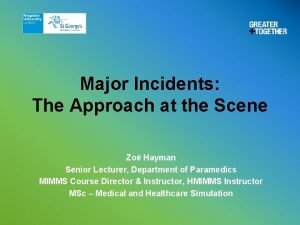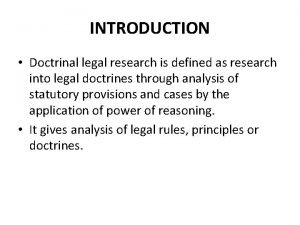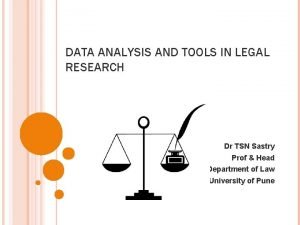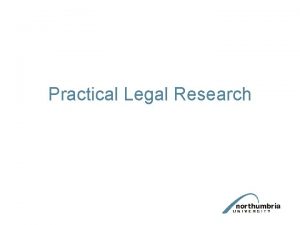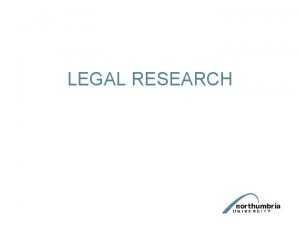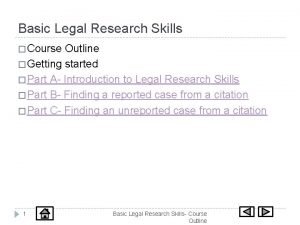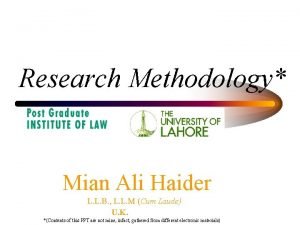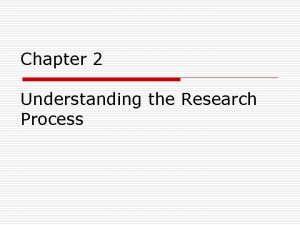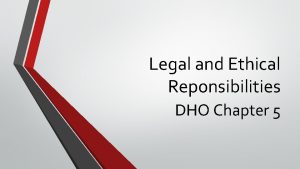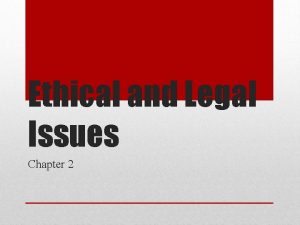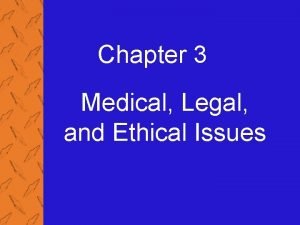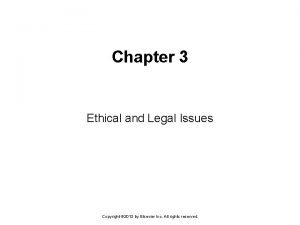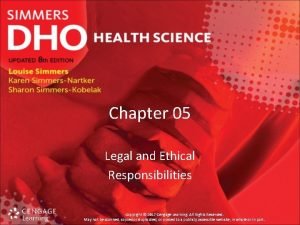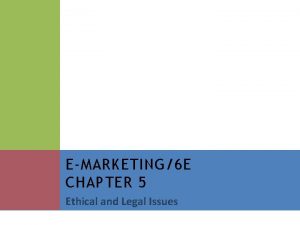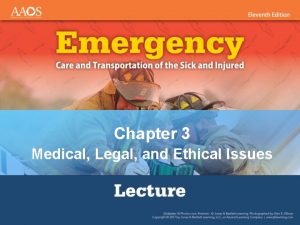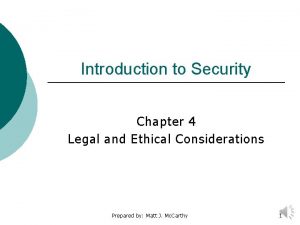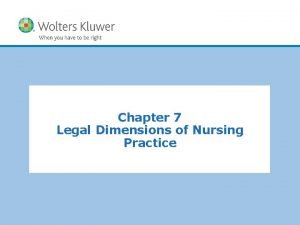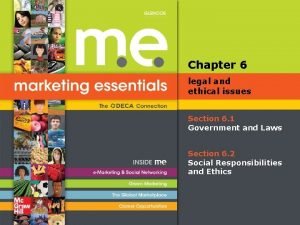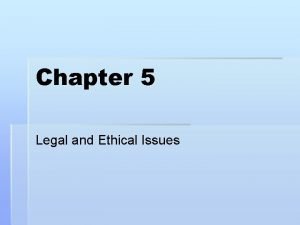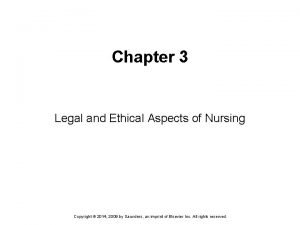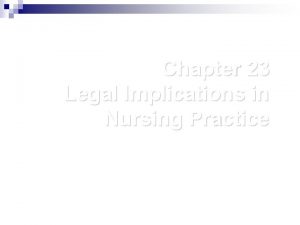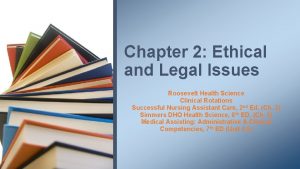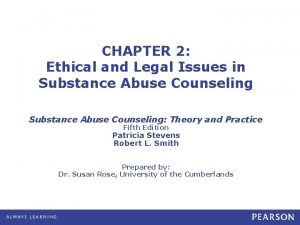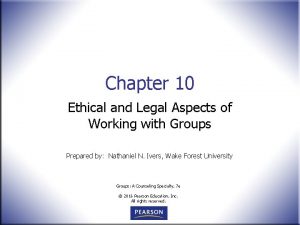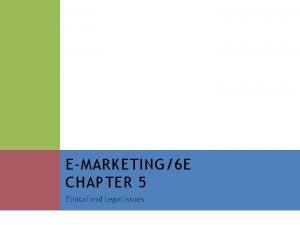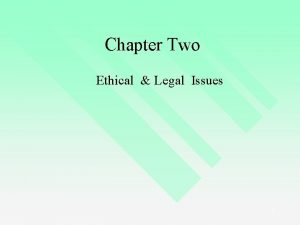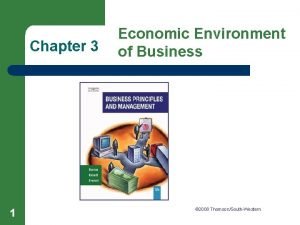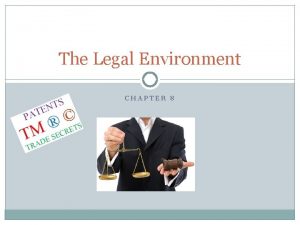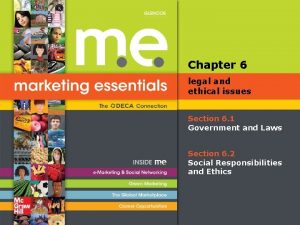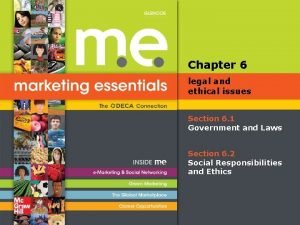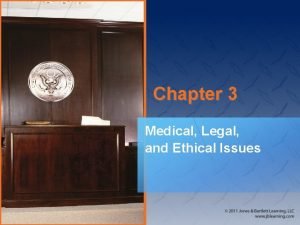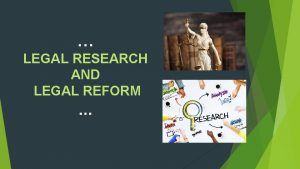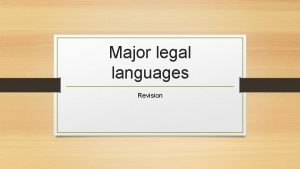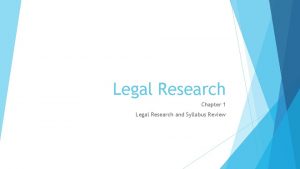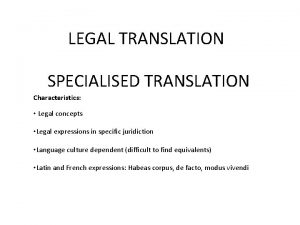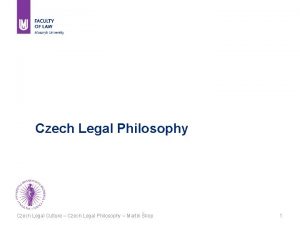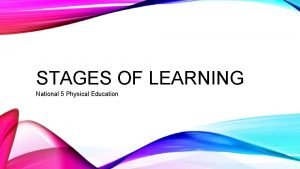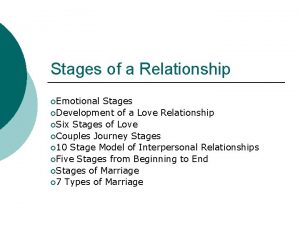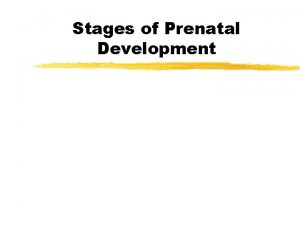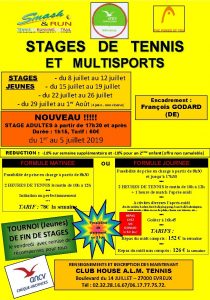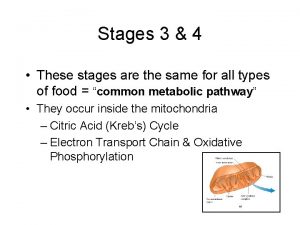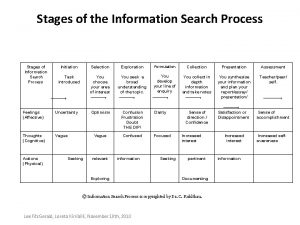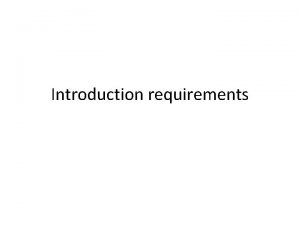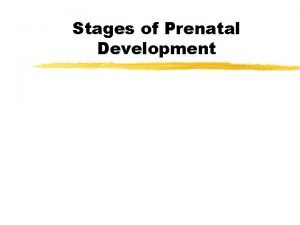MAJOR STAGES IN LEGAL RESEARCH Chapter 3 MAJOR




































- Slides: 36

MAJOR STAGES IN LEGAL RESEARCH Chapter (3)

MAJOR STAGES IN LEGAL RESEARCH • Invariably every research begins with a question or a problem of some sort. • The aim of research is to know ‘something more’ about ‘something’ or to discover answers to meaningful questions through the application of scientific procedures.

Cont… • Legal research is not an exception to this general precept of research. However, undertaking and executing legal research, as a systematic inquiry, is a complex process. It involves a three-stage process. • The processes are research planning, research implementation, and presenting of research findings.

Cont… • Research planning requires the necessary subskills for: fact collection, legal analysis, legal knowledge, problem identification, , fact analysis, further fact collection.

Cont… • • • Research implementation, as the second-stage processes, involves the skills pertaining to: identification of problems for resolution, identification of relevant research source materials. location of the source materials, effective use of the source materials, analysis of research findings, application of findings to the identified problem(s).

Cont… • While third-stage process, i. e. presentation of research findings, requires the skills necessary for: selection of appropriate format or framework, use of clear and succinct language.

Cont… • A cumulative reading of these three-stage processes of legal research and of their components leads to the following major processes that, like any other research, involve in legal research. • They may be presented in a flowchart as under:

Cont… • Identification and Formulation of a Research Problem ↓ • Review of Literature ↓ • Formulation of a Hypothesis (where feasible) ↓ • Research Design

Cont… • Collection of Data ↓ • Analysis of Data ↓ • Interpretation of Data ↓ • Research Report

Cont… • Identification and formulation of a research problem constitutes the starting phase of research. • It is the first and foremost step in any research undertaking. In fact, success of research depends upon the selection of an apt research problem and its proper formulation.

Cont… • An ill-identified formulated research problem invariably makes the researcher subsequently to loose his ‘interest’ in the problem. • It also lands him in a number of unanticipated difficulties at latter stages that may even compel him to abdicate his research half a way.

Cont… • A researcher, therefore, has to constantly remind himself that he needs to put his research problem or research question in a precise way and to phrase it in such a way that it becomes viable and allows discovery of new knowledge.

Cont… • Before formulating a research problem, it is, however, necessary for the researcher, in sequence, to identify an area of his general interest, an area or subject-matter of his special interest from the area of his general interest that he would like inquire into, Then he has to do a lot of reading on the subjectmatter identified for further inquiry.

Cont… • Review of literature : Once the research problem is formulated, the researcher needs to undertake an extensive survey of literature related to his research problem. • This is the process whereby the researcher locates and selects the references that are relevant for his inquiry.

Cont… • A scholar of law, at this stage, is expected to carefully trace and lay his hands on standard textbooks, reference books dealing with the research problem, legal periodicals (to locate research articles, or authoritative comments made, on the subject or its allied subjects).

Cont… • general web pages (to know latest emerging perspectives and illustrative examples). • The researcher has also to take special care to locate earlier studies done on the problem and to have a quick reading thereof.

Cont… • Literature review, thus, helps the researcher to know and to have his preliminary impressions about: 1. The explored and unexplored aspects/dimensions of the problem and the explanations offered or issues raised without offering solutions there for. 2. The gaps, if any, in the explanations of the problem/its dimensions.

Cont… 3. Theoretical and conceptual issues raised, with or without suggesting solutions therefor. 4. The research techniques used in the previous research, and their propriety.

Cont… • Main purposes of literature review, thus, are: 1. To reveal what has been done and written on the topic in the past. 2. To know the kind of material/data used and their sources. 3. To know the central arguments advanced and the concepts revealed and discussed earlier.

Cont… • Formulation of a hypothesis • Hypothesis, is merely a tentative assumption made in order to draw and test its logical or empirical consequences. • A statement to be a hypothesis must be capable of being tested. If its validity cannot be put to empirical confirmation may be ceases to be a hypothesis.

Cont… • However, it is important to note that hypothesis is not required in all types of legal research. A researcher, for example, indulged in exploratory or descriptive legal research is not required to formulate hypothesis. • Statement of problem in the form of hypothesis, invariably, is required in socio-legal research or empirical legal research, wherein the researcher is interested in finding ‘link’ between a ‘legal fact’ and a ‘social fact’ or is interested in assessing ‘impact of law’.

Cont… • Research design : After defining a research problem or formulating a hypothesis, as the case may be, the researcher has to work out a design for the study. • Research design is the conceptual structure within which research is conducted. • The term research design refers to the entire process of planning and carrying out a research study.

Cont… • Research design helps the researcher to identify in advance the kind of data he requires, the means to collect them, the methods to be used for analysis and interpretation of the data, and presentation of his findings with more accuracy. • Research design, thus, helps him in minimizing the uncertainties, confusion and practical hazards associated with the research problem.

Cont… • Collection of data : After formulating the research problem (or reformulating it in the light of literature review) the researcher has now to take a decision about the technique(s) to be employed to collect the requisite information. • He has to a wide range of methods of data collection, ranging from interviews to observations to document analysis, opt for the most appropriate method(s) for collecting data.

Cont… • Data can be primary or secondary. Data collected by the researcher, by using primary sources, is primary. The data already collected by some other agency and available in some published form is secondary. In either case, the researcher has to select an appropriate method.

Cont… • Analysis of data: After the data have been collected, the researcher needs to turn to the task of analyzing them. • Data, in any form, are raw and neutral. Their direction and trend is generally highlighted and reflected with the help of analysis and interpretation. • Analysis of data comes prior to interpretation. However, there is no clear-cut dividing line between analysis and interpretation.

Cont… • Analysis is not complete without interpretation and interpretation cannot proceed without analysis.

Cont… • Interpretation of data • Interpretation is considered as one of the basic components of research. • It refers to the task of drawing inference from the collected data. • The inference may be deductive or inductive. • The former involves inferences from generally abstracts propositions to particular ones. While the latter is inference from particular propositions to general propositions.

Cont… • Through interpretation, the researcher attempts to search for broader meaning of research findings. • He tries to establish link between the results of his inquiry with those of another and to establish some explanatory concepts.

Cont… • Research report • The last phase of the journey of research is the writing of research report. • It is a major component of research. • Research remains incomplete until report is written. • Through research report, the researcher communicates with his audience. • It is an account of journey of the researcher.

Cont… • However, it is not a complete description of what has been done during his research. • It contains only an account of the statement of problem investigated, the procedure adopted and the findings arrived at by the investigator. • It contains the significant facts that are necessary to appreciate and understand the generalizations drawn by the investigator.

Cont… • A researcher is, thus, expected to, through his research report, share with his audience the research problem investigated, the methods used for the collection of data, their analysis and interpretation, and the results or findings of the study. • The purpose of research report is to convey to the interested persons the whole result of the inquiry in sufficient details.

Cont… • A research report generally needs to contain in it the requisite information about: (i) the problem undertaken for investigation and objectives thereof, (ii) methodology adopted in the inquiry, and (iii) analysis and inferences of investigation and their theoretical and practical implications, if any.

Cont… • A legal research report has three major components they are: Preliminary Pages, the Main Text, and the End matter. • In the first part, a legal researcher has to put Acknowledgement, Preface, Table of Contents, Table of Cases, Table of Statutes, and Abbreviations.

Cont… • While in the second part of the research report, he has to have different segments of his research in the form of chapters, starting from ‘Introduction’ to ‘Conclusions and recommendations’. • Each chapter has to have necessary headings and sub-heading with proper documentation in the form of footnotes. • Chapters should be written in concise and simple language.

Cont… • While at the end of the report, he has to place Bibliography, different texts, like statutory provisions refereed to in the main text, 'interview' or 'questionnaire', etc used by him for data collection. • Originality and clarity are the two vital components of research report.
 Cscattt assessment
Cscattt assessment Jesip 5 principles
Jesip 5 principles Advantages of non doctrinal legal research
Advantages of non doctrinal legal research Legal research tools and techniques
Legal research tools and techniques Legal research cle
Legal research cle Practical legal research report example
Practical legal research report example Practical legal research report example
Practical legal research report example Legal research outline
Legal research outline Legal research methodology
Legal research methodology Askalibrarian csuohio
Askalibrarian csuohio Research process
Research process Purpose of the study
Purpose of the study Steps of business research process
Steps of business research process Dho chapter 5 legal and ethical responsibilities
Dho chapter 5 legal and ethical responsibilities Chapter 2 ethical and legal issues
Chapter 2 ethical and legal issues Medical legal and ethical issues chapter 3
Medical legal and ethical issues chapter 3 Chapter 3 ethical and legal issues
Chapter 3 ethical and legal issues Chapter 5 legal and ethical responsibilities
Chapter 5 legal and ethical responsibilities Legal and ethical issues chapter 5
Legal and ethical issues chapter 5 Medical legal and ethical issues chapter 3
Medical legal and ethical issues chapter 3 Legal and ethical responsibilities
Legal and ethical responsibilities Chapter 4 legal and ethical responsibilities
Chapter 4 legal and ethical responsibilities Dimensions of nursing practice
Dimensions of nursing practice Chapter 6 legal and ethical issues
Chapter 6 legal and ethical issues Legal and ethical issues chapter 5
Legal and ethical issues chapter 5 Legal and ethical aspects of nursing
Legal and ethical aspects of nursing Chapter 23 legal implications in nursing practice
Chapter 23 legal implications in nursing practice Chapter 2 ethical and legal issues
Chapter 2 ethical and legal issues Chapter 2 ethical and legal issues
Chapter 2 ethical and legal issues Nonmaleficence
Nonmaleficence Legal and ethical issues chapter 5
Legal and ethical issues chapter 5 Chapter 2 ethical and legal issues
Chapter 2 ethical and legal issues The legal environment of business chapter 3 problem 7bcp
The legal environment of business chapter 3 problem 7bcp The legal environment of business chapter 8 problem 7bcp
The legal environment of business chapter 8 problem 7bcp Chapter 6 legal and ethical issues
Chapter 6 legal and ethical issues Chapter 6 legal and ethical issues
Chapter 6 legal and ethical issues Medical legal and ethical issues chapter 3
Medical legal and ethical issues chapter 3
